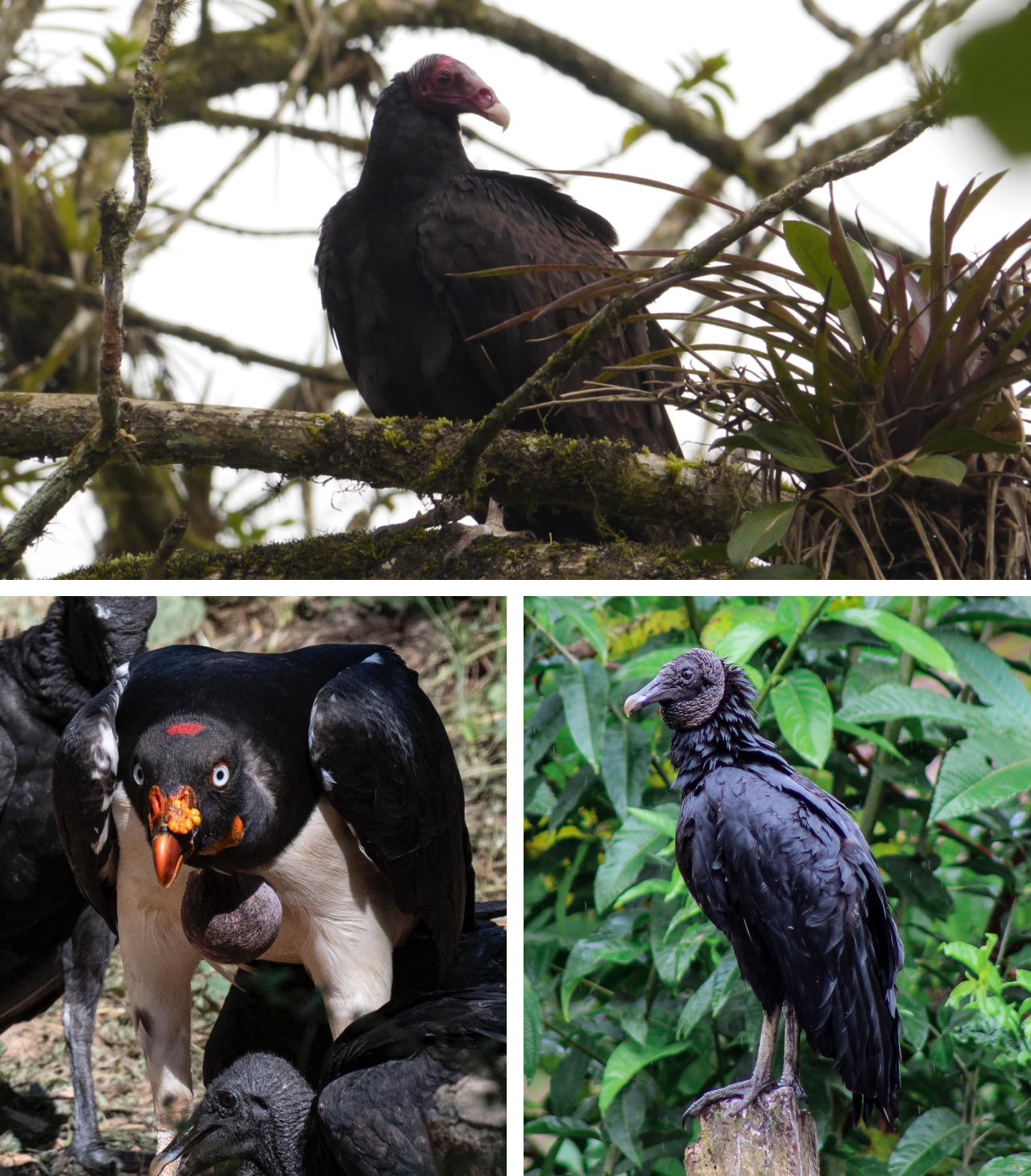
Sergio Garrido Villa
Vultures Dominate Scavenging Communities in Neotropical Dry Forests
Vultures perform an important ecosystem service of cleaning up waste, helping to reduce the spread of disease and bacteria. But despite this important role, vultures are one of the most threatened groups of birds worldwide. Their role in scavenging communities within Neotropical dry forests (a globally threatened ecosystem) is understudied, making it challenging to make conservation recommendations.
Researchers from The Peregrine Fund, the Andean Condor Foundation, and other organizations examined vertebrate scavenger communities in the dry forests of western Ecuador. Using camera traps and experimentally-placed carcasses, they analyzed how carcass size and season (dry versus rainy) is related to scavenging community composition and dynamics.
Their findings, published last month in Scientific Reports, indicate that vultures dominate scavenging communities in dry forests of western Ecuador, with Turkey Vultures (pictured below at top), King Vultures (bottom left), and Black Vultures (bottom right) present at the majority of carcasses. While mammalian scavengers like Ocelots, Crab-eating Raccoons, Tayras, and domestic dogs were also present in the scavenging communities, they were found less frequently and in smaller numbers. The vultures’ strong ability to detect carcasses likely facilitated their dominance.
The researchers also found that vulture abundance was higher at carcasses during the dry season, possibly due to less dense canopy cover. The time it took for carcasses to be detected was not impacted by season or carcass size, and Black Vultures and Turkey Vultures were the most common species to detect the carcass. Black and Turkey Vultures rely on their sense of smell to detect carrion, so canopy cover obscuring the view of the carcasses is not a hindrance to them. The detection of domestic dogs in the scavenging communities raises some concerns, as dogs can pose a significant threat to vultures in Ecuador by competing for food. Further research is needed to analyze the interactions between different species within the scavenging communities.
The results of this study clearly show that vultures play an important role in scavenging communities in dry forests of the Neotropics. The loss of vultures would represent the degradation of an essential ecosystem service, likely leading to human health and ecosystem impacts. Additional research on scavenging communities in the Neotropics is important for developing conservation strategies for both vultures and the threatened ecosystems they rely on.






